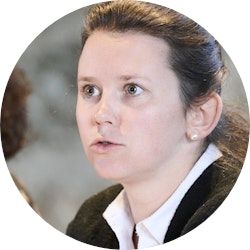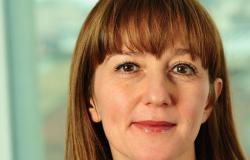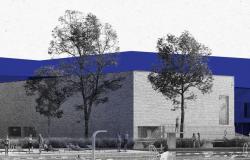Content reserved for subscribers
A committee, bringing together all political parties and health professionals, presented its arguments against the initiative for 24-hour local emergencies, considered dangerous. He calls for support for the counter-project.
Jeremy de Mooij, Anouk Osiek Marmier, Estelle Zermatten, Simon Zurich, Anne Meyer Loetscher, Urs Perler and Emilie Risse (missing Marc Fahrni on the far right) put forward different arguments in favor of the counter-project. © Jean-Baptiste Morel
Published on 04/24/2024
Estimated reading time: 4 minutes
The initiative for local public emergencies twenty-four hours a day will not save lives, according to a committee that came to defend the canton’s counter-project this Wednesday at a press conference. On the contrary, it would “endanger the population of Fribourg”. MPs from all parties as well as representatives of doctors, nurses and pharmacists launched their campaign against this initiative. They believe the counter-project is a better way to respond quickly and safely to medical emergencies throughout the county. They also supported aid of 175 million francs to the Friborg Hospital, which is part of this package put to the vote on June 9.
The initiative committee for H24 emergencies launched its campaign
The committee rejected the arguments of the initiators one by one. “It is not enough to write “emergencies” on the front of a service to save a life,” believes Simon Zurich, MP (PS, Fribourg) and co-chair of the committee. Such a service requires a quality technical platform with a laboratory, radiology, specialized staff, operating theaters and intensive care. “Even a 24-hour service must meet the standards,” says Doctor Anouk Osiek Marmier, president of Médecins Fribourg.
Difficult to apply
For the committee, it would be impossible to provide such a system in Fribourg, Riaz and Tavel, as proposed by the initiative. The cost would be significant, not to mention the difficulty in finding staff. “There are not enough specialists to have a cardiologist in Fribourg, one in Riaz and one in Tavel,” takes MP Estelle Zermatten (plr, Bulle), a professional nurse, as an example. With reduced staff numbers, working conditions risk deteriorating. A minimal volume of cases could be lacking at peripheral sites. “When a person needs surgery, they prefer to turn to a specialist who is used to doing it every day,” believes Simon Zurich.
“If more rapid respondersthe deputies will make sure of it”
Anne Meyer Loetscher
In emergency situations, a stop at a regional hospital may delay treatment. “It is preferable to be stabilized at the scene of the accident,” continues MP Anne Meyer Loetscher (center, Estavayer), co-president of the committee, for whom the measures contained in the counter-proposal are more effective. The rapid responder model, with specialized ambulance staff based on the outskirts, works very well in other cantons. “What matters is the speed of action,” relates Emilie Risse, member of the committee of the Friborg section of the Swiss Nurses Association.
The number of rapid responders has not yet been determined. Three regions, the Jogne valley, Intyamon and Haute Singine, are a priori concerned. “We want the entire township to be covered. If more rapid responders are needed, the deputies will make sure of it,” says Anne Meyer Loetscher. The objective is to guarantee an intervention within fifteen minutes anywhere in the canton.
Alternatives to emergencies
The counter-project also provides for a single, free and bilingual health number. At the end of the line, professionals will do an initial screening, guiding patients to a pharmacy, a clinic, a daycare center or a hospital. For Jeremy de Mooij, president of the Society of Friborg Pharmacists, the overload of the emergency rooms at the cantonal hospital could thus be partially resolved: “The figures show it, the emergency rooms are overoccupied by a very large number of non-vital emergencies, in due to the lack of general practitioners and pediatricians in our canton.” According to the committee, this proportion would amount to 60% of consultations.
By offering a better service to Fribourgers, local emergencies would make it possible to reduce extra-cantonal hospitalizations, the initiators argue. Supporters of the counter-project reject this argument. “The majority of extra-cantonal hospitalizations concern elective operations and not vital emergencies,” reports Jeremy de Mooij.

“If the counter-project passes, none of this will be put in place”
Estelle Zermatten
Among the other measures planned by the counter-project, mobile teams of nurses will be able to travel twenty-four hours a day. Regardless of the location of the intervention, the ambulance journey will have the same cost for the patient throughout the canton. “The counter-project reforms the management of vital and non-vital emergencies, which was a necessity. But if the initiative passes, none of this will be put in place,” regrets Estelle Zermatten.
A strong hospital
The committee calls for support for the guarantee of 105 million francs for urgent investments by the HFR and the loan of 70 million for studies for a new acute care hospital. “We want a strong cantonal hospital. We need an efficient tool in Fribourg,” says Anne Meyer Loetscher. In the coming weeks, the committee will organize evenings in all districts to present its arguments, with the support of the Council of State and the HFR.








